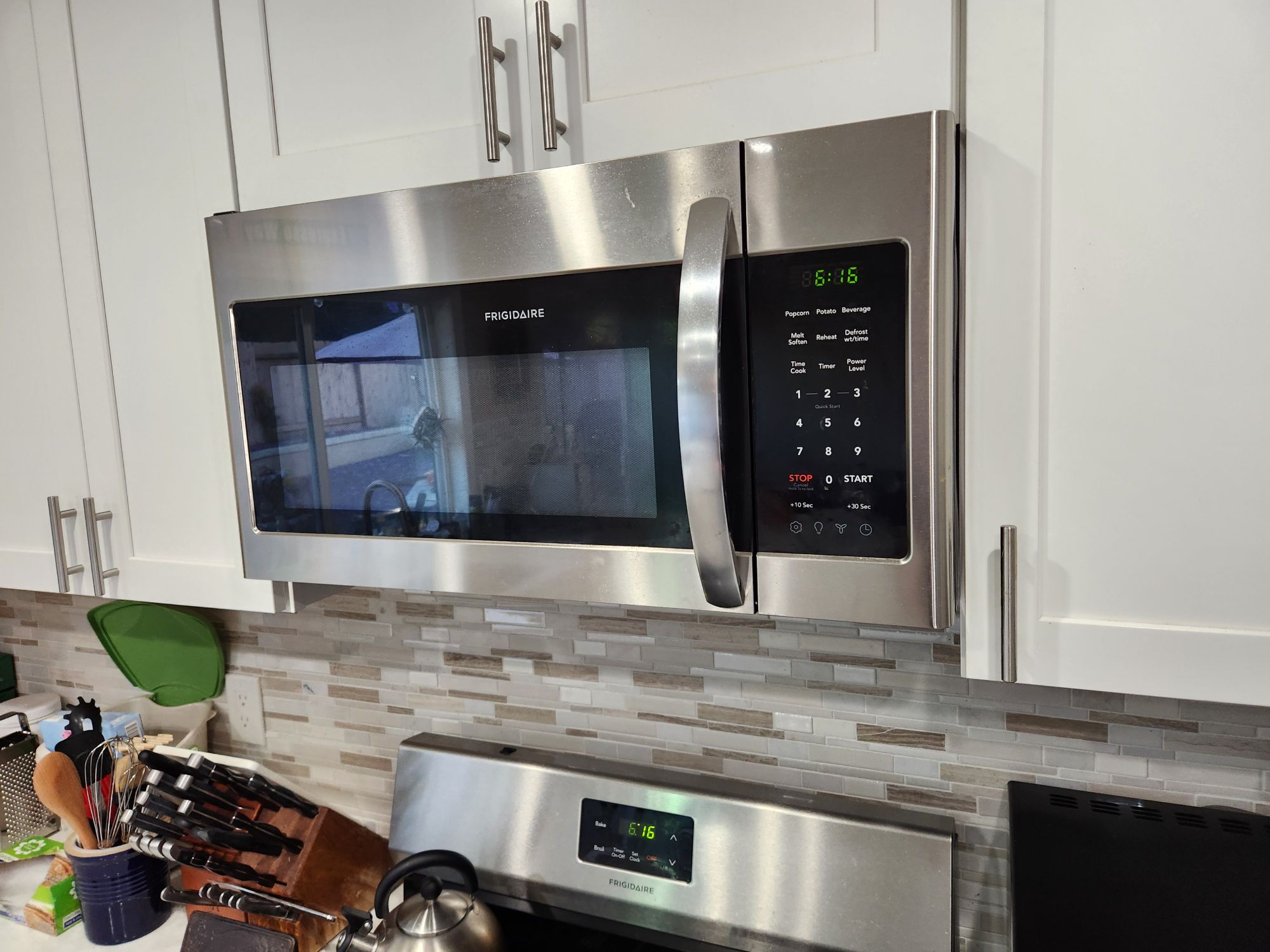Microwaves have become an essential part of modern kitchens, offering quick and convenient cooking solutions. Whether you’re reheating last night’s leftovers or preparing a quick snack, the microwave saves time and effort. But like any appliance, it requires proper care and maintenance to ensure it operates efficiently and lasts longer. In this article, we’ll cover practical tips to help extend the lifespan of your microwave and keep it running at its best.
⠀
- Keep It Clean
⠀
One of the most important aspects of microwave maintenance is keeping it clean. Food splatters, spills, and grease can accumulate inside your microwave, leading to unpleasant odors, stains, and even mechanical problems.
⠀
How to Clean Your Microwave:
– Daily Wipe Down: After every use, wipe down the interior with a damp cloth or paper towel. This prevents spills from hardening and makes deep cleaning easier.
– Deep Cleaning with Steam: For tougher stains or hardened food, fill a microwave-safe bowl with water and add a tablespoon of white vinegar or a few slices of lemon. Microwave it for 5 minutes, then let it sit for a few more minutes to allow the steam to loosen the grime. Wipe it clean with a soft cloth.
– Exterior Maintenance: Wipe down the exterior with a damp cloth regularly. Be especially careful around the control panel to prevent moisture from seeping inside.
⠀
- Cover Your Food
⠀
Using a microwave-safe cover or a paper towel to cover your food not only prevents spills and splatters but also helps distribute heat more evenly. This reduces the need for repeated reheating, minimizing wear on the microwave’s internal components.
⠀
- Avoid Metal and Non-Microwave-Safe Containers
⠀
Microwaving metal objects can cause sparks, damaging the microwave’s magnetron (the component that generates heat) and posing a fire hazard. Always check that your dishes, bowls, and utensils are microwave-safe. Containers made of materials like glass, ceramic, and certain plastics (labeled as microwave-safe) are ideal.
⠀
- Be Mindful of Microwave-Safe Cookware
⠀
Just because a container is marked as microwave-safe doesn’t mean it’s invincible. Avoid microwaving plastic containers that are not specifically marked as microwave-safe, as they may release harmful chemicals when heated. Moreover, plastic wrap should never come into direct contact with food during microwaving.
⠀
- Use the Right Power Setting
Many people tend to use the highest power setting for all their microwaving needs. However, this can lead to overheating and damage certain foods or containers. Use the lower power settings for tasks like defrosting or slowly heating delicate foods, while reserving the high power for boiling water or reheating large meals.
- Allow Adequate Ventilation
⠀
Microwaves require proper ventilation to avoid overheating. Make sure there’s adequate space around the microwave, especially the vents located at the sides or back. A blocked vent can cause the microwave to overheat, potentially damaging internal components and reducing its lifespan.
⠀
- Check and Maintain the Door Seal
⠀
The door seal (gasket) is critical for containing the microwave energy inside the appliance. If the seal becomes damaged or dirty, it could allow heat and energy to escape, leading to inefficient operation or even safety hazards. Clean the seal regularly and inspect it for any damage. If you notice any cracks or tears, it may be time to replace it.
⠀
- Don’t Run the Microwave Empty
⠀
Running your microwave without anything inside can seriously damage it. When a microwave is empty, the microwaves produced by the magnetron have nothing to absorb them, causing them to bounce around the interior and back into the magnetron, potentially leading to failure.
⠀
- Replace the Charcoal Filter (If Applicable)
⠀
Some microwaves, especially those installed over ranges, have built-in charcoal filters to help absorb odors and grease. Check your microwave’s manual to see if this applies to your model. The filter should be replaced periodically according to the manufacturer’s recommendations, usually every six months to a year.
⠀
- Don’t Ignore Strange Sounds or Smells
⠀
If your microwave starts making unusual noises or emitting strange odors, don’t ignore it. These are often signs that something is wrong. It could be a malfunctioning part, electrical issue, or something else that needs professional attention.
⠀
- Be Cautious with Weight Limits
⠀
Avoid overloading your microwave. Large or heavy containers can put strain on the microwave’s turntable motor, potentially leading to damage. Always check the microwave’s weight limit and avoid exceeding it.
⠀
- Professional Maintenance and Repair
⠀
Even with regular care, microwaves can experience issues over time. If your microwave shows signs of malfunction—such as inconsistent heating, unusual noises, or door problems—it’s best to seek professional help. Attempting DIY repairs can be dangerous, especially since microwaves contain high-voltage components even when unplugged.
⠀
Your microwave is a crucial part of your kitchen, and by following these maintenance tips, you can keep it running efficiently for years to come. However, if you’re experiencing any issues or need professional maintenance, don’t hesitate to reach out to Home Appliance Service Center. Our team of experienced technicians can help diagnose and repair any microwave problems, ensuring that your appliance continues to serve you well. Contact us today to schedule an appointment and keep your microwave in top condition!
Contact us
 619-928-5000
619-928-5000  Request Service
Request Service 
